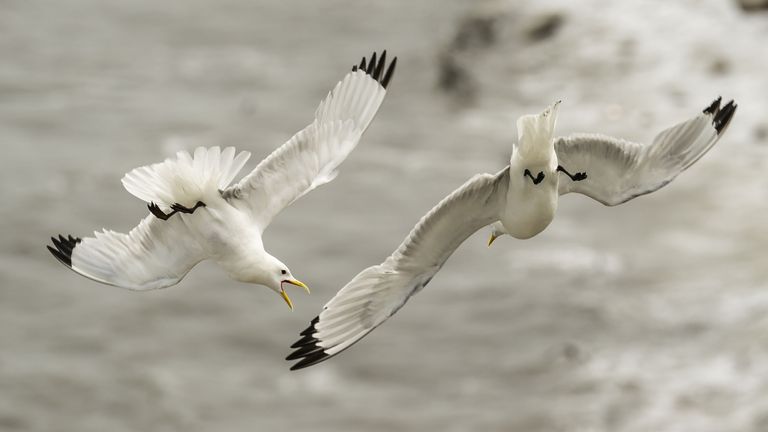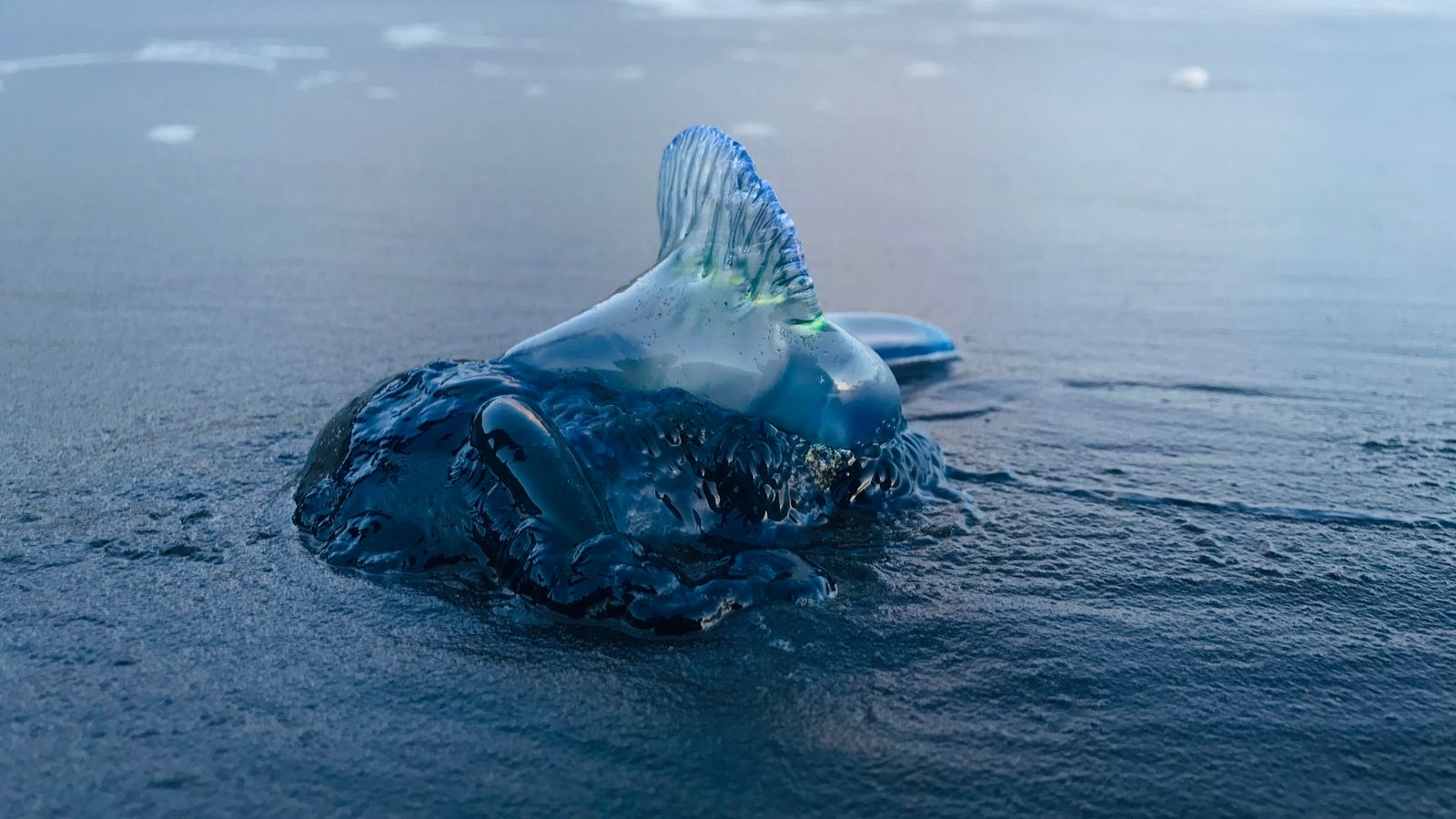[ad_1]
A highly pathogenic bird flu has infected Scotland’s seabird population, leaving hundreds dead along the coast.
Highly Pathogenic Avian Influenza (HPAI) has swept through various colonies, killing numerous different species, RSPB Scotland says.
According to reports, more than 1,000 gannets and hundreds of great skuas have been found dead, with dozens of guillemots, sandwich and Arctic terns also affected.
The epicentre of the outbreak, which originated in poultry, is in Shetland and Scotland’s northern isles, but dead birds have also been found in Orkney, Fair Isle, the Western Isles, St Kilda, Troup Head and Bass Rock.
Seabird carcases are currently being tested for the virus as far south as Northumberland, the RSPB added, with some global populations at risk due to highly concentrated numbers in Scotland.
“We’re dealing with a highly mutable and pathogenic strain of bird flu that has sadly now got into our seabirds,” James Reynolds of RSPB Scotland told BBC Radio 4’s Today programme on Friday.
“The epicentre is in Shetland and the northern isles, but they’re showing up in the western isles, on mainland sites and there are reports now starting to come in from around the UK coastline.
“This is really serious, because seabirds are long lived, many don’t reach breeding age until they’re about five years, and typically they have small broods or even single chicks sometimes.”
10% of global gannet population lost
Scotland is home to 60% of the global population of breeding great skuas and 46% of breeding gannets.
Experts fear 10% of the gannet population has already been lost.
The current outbreak follows a suspected avian flu outbreak in Loch Fleet last month, which killed dozens of wild birds.
The RSPB is calling on the Scottish government for better monitoring of the virus and for “more clarity” on how dead birds are being collected and disposed of to avoid further spread.
If anyone finds a dead bird along any part of the UK coast, they should not touch them and instead call the dedicated hotline set up by the Department for Food and Rural Affairs (DEFRA).
[ad_2]








